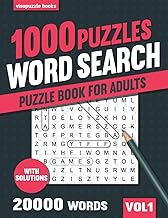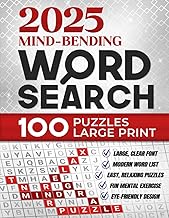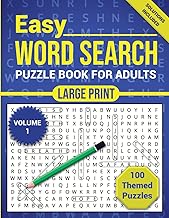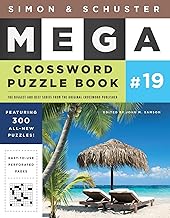Master Mind-Bending Word Puzzles: The Ultimate Brain-Teaser Guide
Are you ready to sharpen your mind, expand your vocabulary, and unlock a world of intellectual challenge? Mind-bending word puzzles aren’t just a pastime; they’re a powerful workout for your brain. From classic crosswords to modern digital delights, these linguistic labyrinths offer endless entertainment and significant cognitive benefits.
This comprehensive guide will take you on a journey through the fascinating world of word puzzles. We’ll explore different types, reveal expert strategies, and provide actionable tips to transform you from a casual solver into a true puzzle master. Get ready to flex your mental muscles!
Why Dive into Mind-Bending Word Puzzles?
Engaging with word puzzles offers more than just a momentary distraction. It’s a holistic exercise for your brain, contributing to overall cognitive health and well-being.
Cognitive Benefits for a Sharper Mind
- Enhanced Vocabulary: Regularly encountering new words and their definitions, especially in cryptic clues, naturally expands your lexicon.
- Improved Memory: Recalling words, definitions, and patterns strengthens both short-term and long-term memory functions.
- Boosted Problem-Solving Skills: Puzzles demand logical deduction, pattern recognition, and creative thinking to arrive at solutions.
- Increased Focus & Concentration: Immersing yourself in a puzzle helps train your brain to filter out distractions and maintain attention.
- Delayed Cognitive Decline: Studies suggest that engaging in mentally stimulating activities can help maintain cognitive function as you age.
- Better Spelling & Grammar: Consistent exposure to correct word usage reinforces linguistic rules.
Stress Relief & Entertainment
Beyond the intellectual gains, word puzzles provide a healthy escape from daily stressors. They offer a sense of accomplishment, a focused break from screens, and a fun way to unwind.
Decoding the Different Types of Word Puzzles
The world of word puzzles is vast and varied, catering to different preferences and skill levels. Let’s explore some of the most popular and intriguing types.
Classic & Timeless Challenges
- Crosswords: The quintessential word puzzle. You fill a grid with words derived from clues, often requiring knowledge of general trivia, synonyms, and wordplay.
- Cryptic Crosswords: A more advanced variant where clues are intricate riddles, often involving anagrams, hidden words, and double meanings.
- Word Searches: Find hidden words within a grid of letters. Great for quick visual scanning and pattern recognition.
- Anagrams: Rearrange the letters of one word or phrase to form another. These challenge your ability to see new possibilities within existing letter sets.
- Scrabble / Words With Friends: A tile-based game where players form words on a board to score points. It combines vocabulary, strategy, and spatial reasoning.
Logic & Deduction-Based Word Games
- Cryptograms: Puzzles where each letter in a short passage is replaced by a different letter. You decipher the code by identifying common letters and patterns.
- Rebuses: Puzzles that combine pictures, letters, and symbols to represent a word or phrase (e.g., “MAN” + “WALKS” = “man walks”).
- Logic Grid Puzzles (with a word element): Often involve a scenario and a series of clues, where you use deductive reasoning to match items or people. Sometimes the solutions are words themselves.
Modern & Digital Word Play
- Wordle and its Variants: A popular daily online game where you guess a five-letter word in six tries, receiving feedback on correct letters and positions.
- Spelling Bee (NYT): From the New York Times, this puzzle asks you to form words using a central letter and six others, aiming for a “pangram” that uses all letters.
- Text-Based Adventure Games: While not strictly puzzles, these often feature word-based riddles and linguistic challenges to progress through a narrative.
Your Strategy Guide to Mastering Word Puzzles
Becoming proficient at word puzzles isn’t about innate genius; it’s about developing specific skills and applying effective strategies. Here’s how to elevate your game.
Building Your Foundational Skills
- Read Voraciously: The more you read, the more words and concepts you absorb, which directly translates to better puzzle-solving.
- Cultivate a Dictionary & Thesaurus Habit: Don’t just look up words; explore their synonyms, antonyms, and etymology. Online tools make this incredibly easy.
- Focus on Spelling: Good spelling is crucial. Pay attention to common letter combinations and tricky words.
- Learn Common Prefixes & Suffixes: Recognizing these building blocks can help you break down longer words and identify patterns.
Advanced Problem-Solving Techniques
- Break It Down: For complex puzzles, don’t try to solve everything at once. Tackle smaller, more obvious clues first to build a foundation.
- Pattern Recognition: Look for recurring letters, common word endings, or typical clue structures. In cryptograms, frequent letters like E, T, A, O, I, N are key.
- Process of Elimination: If you’re unsure, rule out possibilities that definitely don’t fit.
- Don’t Be Afraid to Guess (and Verify): Sometimes a well-educated guess can unlock a whole section of a puzzle. Just be prepared to backtrack if it’s wrong.
- Take a Break: Staring at a puzzle for too long can lead to mental fatigue. Step away, do something else, and return with fresh eyes. You’ll often spot the solution instantly.
- Practice Cryptic Clue Types: For cryptic crosswords, familiarize yourself with common clue devices: anagrams, charades, reversals, hidden words, homophones, and double definitions.
Leveraging Resources Wisely
- Online Dictionaries & Anagram Solvers: Use these as learning tools. If you get stuck, look up the answer, but then understand *why* it’s the answer.
- Puzzle Books & Apps: Invest in a variety of puzzle books or download apps that offer different types of challenges. Many apps provide hints and explanations.
- Online Communities & Forums: Engage with other puzzle enthusiasts. You can learn new strategies, get help with tricky clues, and share your triumphs.
Practical Tips for Daily Brain Training
Consistency is key to mastering any skill, and word puzzles are no exception. Incorporate them into your daily routine for maximum benefit.
- Start Small: Don’t jump into the hardest puzzle first. Begin with easier versions and gradually increase the difficulty.
- Set a Routine: Dedicate 15-30 minutes each day to puzzle-solving, perhaps with your morning coffee or before bed.
- Vary Your Puzzles: Don’t stick to just one type. Challenge different parts of your brain by rotating between crosswords, Wordle, cryptograms, and anagrams.
- Track Your Progress: Notice how you improve over time. Can you solve puzzles faster? Are you using fewer hints?
- Play with Others: Solve puzzles collaboratively with friends or family. It’s a great way to learn new perspectives and enjoy the challenge together.
- Embrace the Challenge: Don’t get discouraged by difficult puzzles. See them as opportunities to learn and grow your problem-solving abilities. The “aha!” moment is incredibly rewarding.
Conclusion
Mastering mind-bending word puzzles is a journey of continuous learning and immense satisfaction. Not only do these brain-teasers provide endless entertainment, but they also offer tangible benefits for your cognitive health, memory, vocabulary, and problem-solving skills.
By understanding the different types of puzzles, applying strategic thinking, and making puzzle-solving a regular part of your routine, you’ll unlock your full mental potential. So, pick up a pen, open an app, and start your quest to become the ultimate word puzzle master today!
What’s your favorite mind-bending word puzzle? Share your go-to brain-teaser in the comments below!
Related Amazon Products

1000 Word Search Puzzle Book for Adults: Big Puzzlebook with Word Find Puzzles for Seniors, Adults and all other Puzzle Fans

Word Search Books for Adults Large Print - Mind-Bending: 100 Challenging Themed Word Puzzles for Adults with 2000 Words. Brain Teasers and Word Games for Adults to Boost Mental Agility

Word Search Puzzle Book for Adults: 100 Easy, Large Print, Themed Puzzles with Solutions for Hours of Entertainment

Simon & Schuster Mega Crossword Puzzle Book #19 (19) (S&S Mega Crossword Puzzles)
As an Amazon Associate I earn from qualifying purchases.






